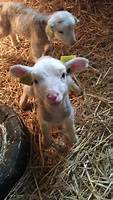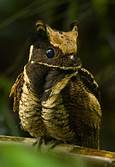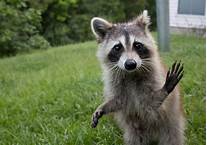Are Kinkajous Good Pets?
Kinkajous are small, nocturnal mammals native to the rainforests of Central and South America. They are known for their long, bushy tails, large eyes, and soft fur. Kinkajous are intelligent and playful animals, and they can make affectionate companions. However, they are also high-maintenance pets, and they are not suitable for everyone.

Temperament and Behavior
Kinkajous are generally friendly and curious animals. They are very active and playful, and they enjoy climbing and exploring. Kinkajous are also very social animals, and they do best when they have a companion. They can be trained to perform tricks, and they can even learn to use a litter box.
However, kinkajous can also be destructive and mischievous. They are known for chewing on furniture, walls, and other objects. They can also be very loud, especially at night. Kinkajous are not recommended for people who live in apartments or who have small children.
Diet and Nutrition
Kinkajous are omnivores, and they eat a variety of fruits, vegetables, and insects. They also enjoy eating small mammals, birds, and reptiles. Kinkajous need a diet that is high in protein and low in fat. They should be fed a variety of foods, including fruits, vegetables, lean meats, and insects.
Kinkajous also need access to fresh water at all times. They should be given a water bottle or a bowl of water that is changed daily.
Housing and Care
Kinkajous need a large enclosure that is at least 4 feet by 4 feet by 6 feet. The enclosure should be made of sturdy materials that the kinkajou cannot chew through. The enclosure should also have plenty of perches and climbing structures. Kinkajous are very active animals, and they need plenty of space to move around.
The enclosure should be kept clean at all times. The bedding should be changed daily, and the enclosure should be disinfected weekly. Kinkajous also need access to a clean litter box.
Health and Wellness
Kinkajous are generally healthy animals, but they are susceptible to a number of health problems. These include respiratory infections, gastrointestinal problems, and skin problems. Kinkajous should be taken to the veterinarian for regular checkups.
Kinkajous can live for up to 25 years in captivity. However, they require a lot of care and attention, and they are not suitable for everyone. If you are considering getting a kinkajou as a pet, be sure to do your research and make sure that you are prepared to provide the animal with the care and attention it needs.
Declaration: All article resources on this website, unless otherwise specified or labeled, are collected from online resources. If the content on this website infringes on the legitimate rights and interests of the original author, you can contact this website to delete it.





